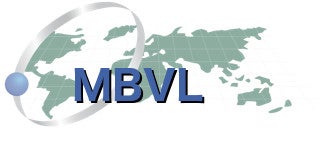Marine ecosystems are complex and variable networks of interacting organisms that support roughly half of global productivity and play important roles in sustaining global processes, including regulation of climate. The lower trophic levels that are the focus of this project include primary producers at the base of the food web, as well as bacteria and a variety of small grazers that turn over rapidly and provide links that transfer energy to higher trophic levels, such as fish, seabirds, and marine mammals, helping to maintain healthy ecosystems. Mounting recognition points to the societal value of not just timely information about the status and change of marine ecosystems but how well we can model and predict them. While existing and emerging observation systems are poised to contribute, there is a large need for computationally-enabled marine biodiversity data and information systems. Despite recognition as system-level science, the way specialists and non-specialists think about ecosystems must move from reducing the problem spaces into specialized and finer partitions to a significantly more integrative and predictive one. This research effort brings together computational and information scientists, oceanographers and microbiologists to develop a Marine Biodiversity Virtual Laboratory (MBVL). In addition to research investigations of marine ecosystems, the Virtual Laboratory provides a platform for education via student diversity programs at the three institutions. The important learning opportunities will be two-fold for students: (1) to learn about, model, and make predictions for biodiversity in natural systems, and (2) to be exposed to working in an interdisciplinary team that includes both natural scientists and computer scientists. We will be fostering a new generation of data scientists with skills that can cross disciplines. There will be capabilities to trace, verify and trust the original data and model sources that comprise key indicators of diversity as part of ecosystem health; this has become a requirement for technical (and societal) implementations. MBVL will contain a knowledge base for such indicators. While this is essential for research, the MBVL will also enhance education as students will truly probe, question, explore and experiment with the health, risks, and possible changes in specific marine environments. MBVL will address multi-scale, heterogeneous data challenges with informatics solutions that enable the cyber-generation and documentation of biodiversity indicators, providing the traceability between data and information to be used as a basis for sustainable ecosystem-based management and needed policy decisions. Thus researchers and students will be further engaged to think and act at the system-level. The research will have impacts beyond ocean sciences, i.e. more broadly in management and policymaking regarding marine resources and ecosystem services via key links with fisheries managers enabled by collaborations external to this project and with industry partners to evaluate and disseminate solutions to a much wider user base.
View publications

